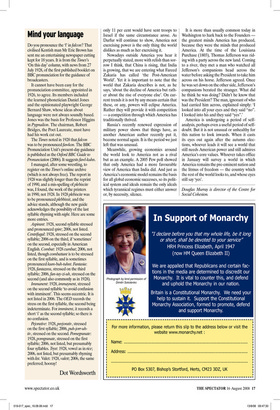Mind your language
Do you pronounce the ‘l’ in falcon? That civilised Kentish man Mr Eric Brown has sent me an entertaining newspaper cutting kept for 18 years. It is from the Times’s ‘On this day’ column, with news from 27 July 1928, of the first published booklet on BBC pronunciation for the guidance of broadcasters.
It cannot have been easy for the pronunciation committee, appointed in 1926, to agree. Its members included the learned phonetician Daniel Jones and the opinionated playwright George Bernard Shaw, whose ideas about language were not always soundly based. Jones was the basis for Professor Higgins in Pygmalion. The chairman, Robert Bridges, the Poet Laureate, must have had his work cut out.
The Times noted in 1928 that falcon was to be pronounced fawkon. The BBC Pronunciation Unit’s present-day guidance is published as the Oxford BBC Guide to Pronunciation (2006). It suggests fawl-kuhn.
I managed, after some wrestling, to register on the Times’s online archive (which is not always free). The report in 1928 was slightly longer than the reprint of 1990, and a mis-spelling of plebiscite was, I found, the work of the printers in 1990, not 1928. In 1928 plebiscite was to be pronounced plebbissit, and the advice stands, although the new guide acknowledges the possibility of the last syllable rhyming with night. Here are some more entries.
Aspirant: 1928, second syllable stressed and pronounced spire; 2006, not listed. Centrifugal: 1928, stressed on the second syllable; 2006 on the third, if ‘sometimes’ on the second, especially in American English. Combat: 1928 cumbat; 2006, not listed, though combattant is to be stressed on the first syllable, and is sometimes pronounced kum-buh-tuhnt. Fantasia: 1928, fantazeea, stressed on the third syllable; 2006, fan-tay-zi-uh, stressed on the second (and also commonly as in 1928).
Immanent: 1928, immaynent, stressed on the second syllable ‘to avoid confusion with imminent’. This seems eccentric. It is not listed in 2006. The OED records the stress on the first syllable, the second being indeterminate. For imminent, it records a short ‘i’ as the second syllable; so there is no confusion.
Pejorative: 1928, peejorativ, stressed on the first syllable; 2006, puh-jorr-uhtiv, stressed on the second. Pomegranate: 1928, pomgranate, stressed on the first syllable; 2006, not listed, but presumably four syllables. Tryst: 1928, vowel as in rice; 2006, not listed, but presumably rhyming with list. Valet: 1928, valett; 2006, the same preferred; hooray!
Dot Wordsworth


























































 Previous page
Previous page